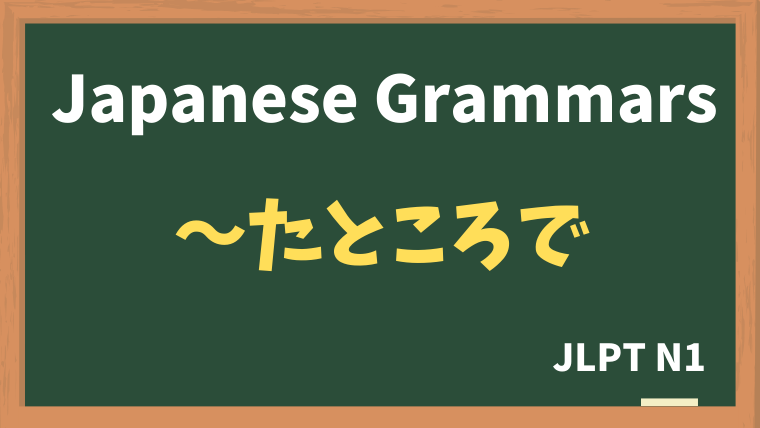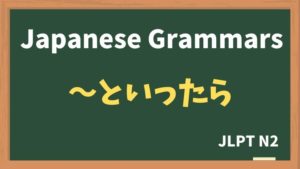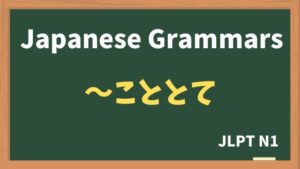
Explanation:〜たところで
fa-check-circleMeaning
"いくら〜しても、〜できない"
"no matter how much one 〜 / even if"
Used to convey the meaning "even if" or "even though," typically followed by a negative or pessimistic conclusion. It implies that even if a certain action is taken or a situation occurs, it won’t result in anything meaningful or won’t change the situation significantly. This phrase often conveys a sense of futility, suggesting that the action is not worth the effort because it won’t make a difference.
fa-check-circleForm
V(ta form)+ ところで
fa-check-circlePoints
- "Even if" Connotation: It’s used to express that even if something happens, it won’t lead to the desired outcome or any significant change.
- Often Followed by Negative or Futile Outcomes: The clause following "〜たところで" typically highlights that the result is unsatisfactory, futile, or has little impact.
- Pessimistic Tone: The expression often carries a negative or resigned nuance, reflecting a sense of inevitability or pointlessness.
fa-check-circleJLPT Level
N1
fa-check-circleNote
「〜てください」や「〜ましょう」といった表現と一緒には使えません。
It cannot be used with expressions like "~てください" or "〜ましょう"
Sample sentenes
うわ、寝坊しちゃった。学校まで1時間かかるし、今さら急いだところで間に合わないなあ。
Oh no, I overslept. It takes an hour to get to school, and no matter how much I hurry now, I won’t make it.
テストまであと5分だし、今からノートや教科書を見て勉強したところで、結果は変わらないよ。
With only five minutes left before the test, no matter how much I study from my notes or textbooks now, it won’t change the outcome.
もう後悔したところで、遅いよ。
It’s too late to regret now, no matter how much you regret.
今さら謝ったところで、絶対に許してあげない。
Even if you apologize now, no matter what, I will never forgive you.
頑張ったところで、結果は同じだろう。
Even if I try hard, the result will probably be the same.
Vocabulary
| Japanese |
English | |
| 後悔する | こうかいする | to regret |






